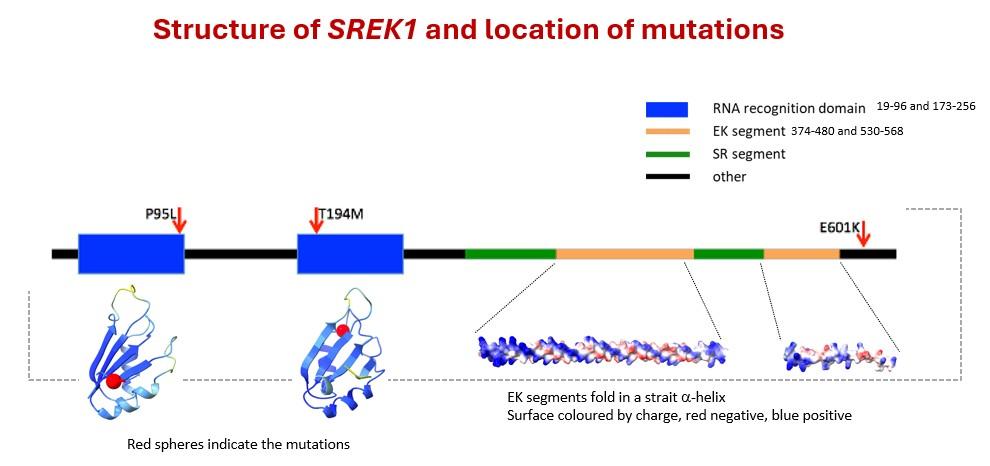
Submitted by aml95 on Wed, 02/07/2025 - 12:45
Researchers from the Yeo group at the IMS-MRL including Giles Yeo, Anna-Maria Siegert, and Loraine Tung, working in collaboration with Institut Pasteur de Lille, Imperial College London and research teams in Pakistan, have identified that mutations in the SREK1 gene result in severe early onset obesity and share features with Prader-Willi syndrome (PWS).
Obesity is a major public health problem. While it has undoubtedly been driven by the changing environment, not everyone has ended up with obesity. This variation of body-weight within the population has a large genetic component, with studies pointing to the brain as having a central role in modulating appetite. However, only around 10% of severe human obesity currently has a clear identified genetic cause, with many other obesity genes remaining to be discovered. Studying the disease in so-called ‘consanguineous’ populations, where marriages between first or second cousins are common, increases the chances of finding disease causing mutations.
In this study, published in the Journal of Clinical Investigation, the researchers used this approach, and have identified three rare mutations in a gene called SREK1 in Pakistani children with severe obesity from separate families. This gene has not previously been linked to obesity, so they needed to functionally confirm this. Because obesity is a brain disorder, they needed to study the function in human neurons, which are clearly next to impossible to obtain from a living human. To get around the problem, human stem cells were used, as they can be converted to any other type of cells, including neurons. Using gene editing techniques they engineered these SREK1 mutations into stem cells, and then converted them into neurons. They found that the neurons carrying the mutations showed down-regulation of a family of RNA genes called SNORD116. This was important because SNORD116s has been shown to be involved in another rare condition called Prader-Willi Syndrome (PWS), the key characteristics of which are a voracious appetite and severe obesity in childhood, coupled with cognitive impairments. A more detailed assessment of the children carrying SREK1 mutations, demonstrated a substantial overlap in characteristics with PWS.
These findings have the potential to shed light on the mechanisms underlying PWS, as well as the regulation of body-weight, more broadly.
Reference:
Sadia Saeed, Anna-Maria Siegert, YC Loraine Tung, Roohia Khanam, Qasim M. Janjua, Jaida Manzoor, Mehdi Derhourhi, Bénédicte Toussaint, Brian Y. H. Lam, Sherine Awad, Emmanuel Vaillant, Emmanuel Buse Falay, Souhila Amanzougarene, Hina Ayesha, Waqas Imran Khan, Nosheen Ramzan, Vladimir Saudek, Stephen O'Rahilly, Anthony P. Goldstone, Muhammad Arslan, Amélie Bonnefond, Philippe Froguel, Giles S.H. Yeo. Biallelic variants in SREK1 downregulating SNORD115 and SNORD116 cause a Prader-Willi-like syndrome. J Clin Invest. 2025. https://doi.org/10.1172/JCI191008

